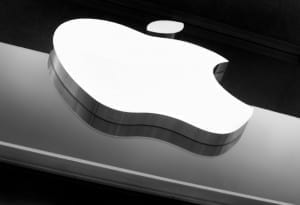iTunes Radio Officially Here
After months of promising that it was coming soon, Apple finally officially released iTunes Radio streaming service along with the release of iTunes 11 and iOS 7. As we’ve written before, the new service has much in common with Pandora, though it has been interesting to see how a digital music industry giant like Apple could distinguish itself amongst streaming services. We now have a better idea of exactly what the service is, but not necessarily how that distinction will be made.

Concerning User Experience, iTunes Radio is Not Very Different than Pandora
We reported that early accounts of iTunes Radio seemed to describe a service very similar to what Pandora already offers. This includes the ability to create your own stations of different music types, as well as the option of choosing from previously curated stations. Additionally, the service learns your preferences the more you listen, and gives you the familiar option to approve (“Play More Like This”) or disapprove songs (“Never Play This Song”) that will help determine what songs you hear.
And after using the new service, the preliminary reports are confirmed that the service is very similar to Pandora, as far as user experience goes. But Apple does has two real advantages:
- Tying the service to iTunes brings in a built-in audience. This audience may be new to internet radio, or they may switch over from Pandora. This will also be encouraged by the inclusion of iTunes Radio being built in to all mobile devices running iOS 7. Certainly, this all gives Apple ample room to scale its new service.
- With the service tied to the iTunes Store, users can seamlessly purchase a download of a song they hear on the streaming service, helping Apple succeed across its digital music offerings.
Will this be enough to bring in users? Time will tell, but advertisers and the music industry appear to think it will, which is where Apple’s real advantages lie.
The Real Advantage for Apple is Behind the Scenes
Pandora is currently (and seemingly forever) tied up in court cases over the compulsory licenses used to legally cover the streaming of songs on the service. Record industry folks and musicians alike are consistently bemoaning this practice as unfair to nearly everyone involved. Whether it is or not, and whether this can be a sustainable way for artists to make money in the long run is unclear, but Apple went another direction.
As we reported in the previous article, Apple secured deals with all the major labels to license the music it pays. And reportedly the labels also will get a cut of the advertising on the site, which it can be assumed will go a long way in drawing label support to Apple, particularly since most are already unhappy with the way Pandora operates.
And that advertising is the second great behind-the-scenes advantage for Apple. Ad Age reports that several big brands including Pepsi have spent nearly $10 million to advertise on the service. Clearly they believe the service has a significant chance of challenging the stronghold Pandora currently has on the market, though of course time will tell who will be the big winner.




